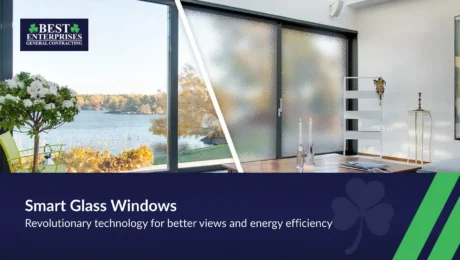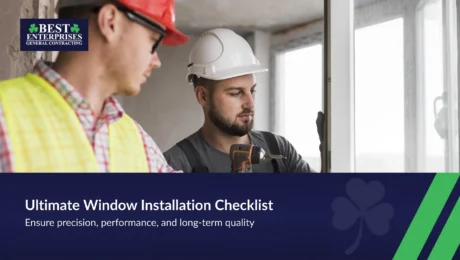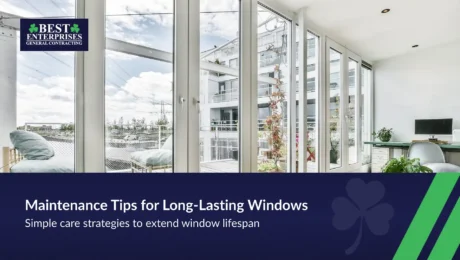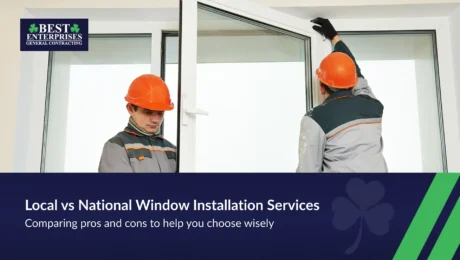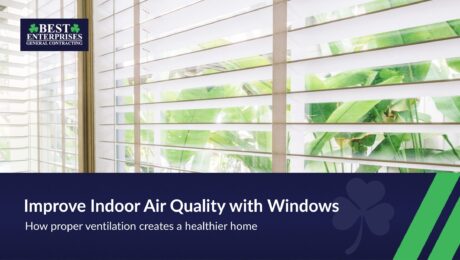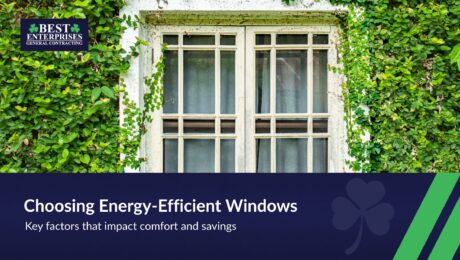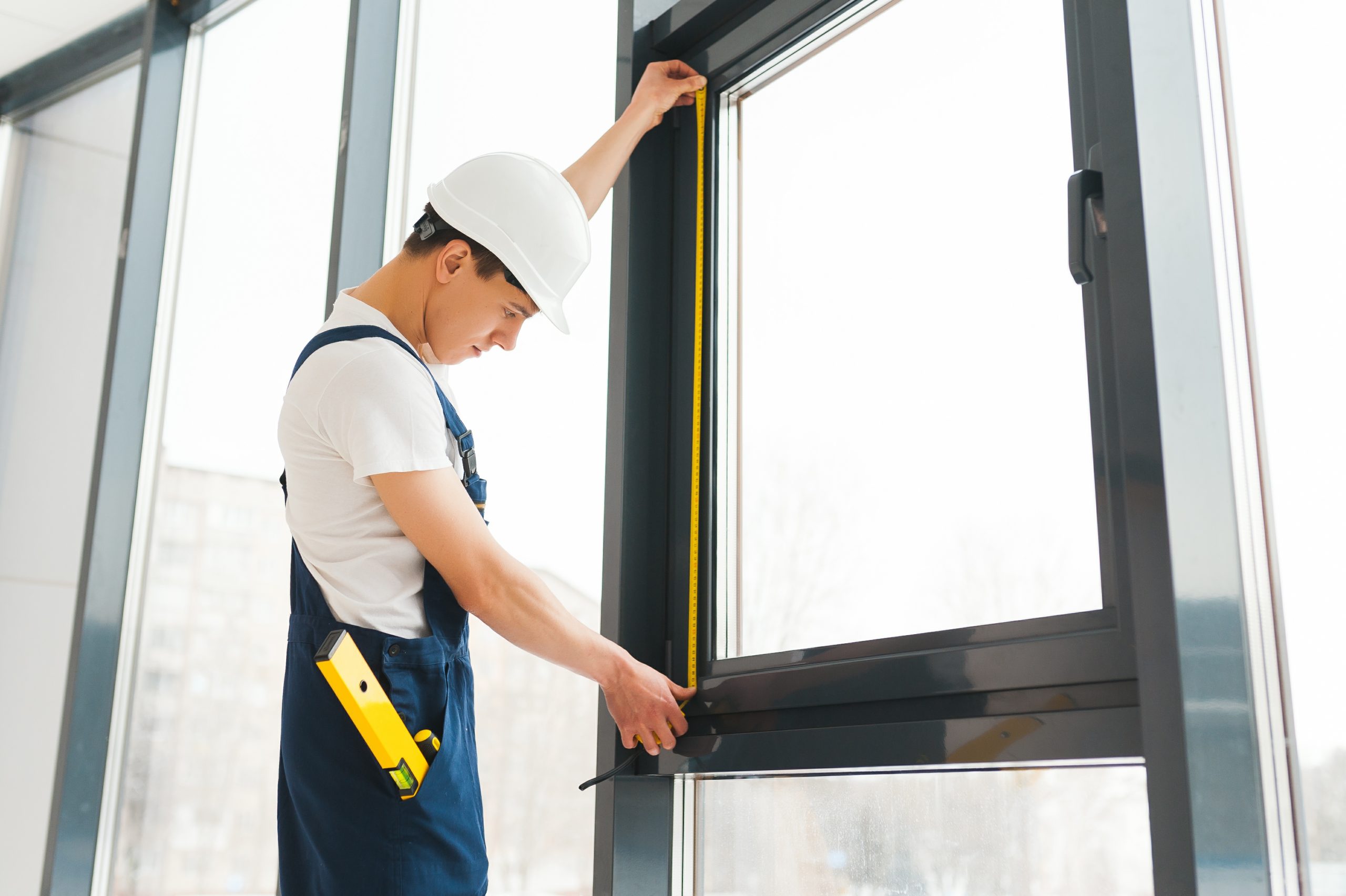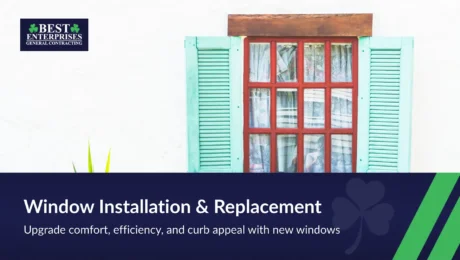Smart Glass Windows: Revolutionizing Views and Energy Efficiency
Windows have transcended their traditional roles of providing light and ventilation. Today, they are at the forefront of technological innovation, enhancing both aesthetics and functionality. One of the most groundbreaking advancements in this domain is smart glass technology. This blog delves into the world of smart glass, exploring its workings, benefits, applications, and the transformative impact it has on modern homes.
Traditional windows, long valued for providing light and views, are now being revolutionized by smart glass technology. This cutting-edge innovation is set to transform how we see the world from our homes and manage energy efficiency and comfort within them.
What is Smart Glass?
Smart glass is a dynamic glazing technology that changes how much light passes through when voltage, light, or heat is applied.You can control this transformation manually, automatically, or through a smart home system, offering greater flexibility and ease of use. Smart glass technology is often associated with Energy Star windows due to its significant energy-saving potential.
Types of Smart Glass:
- Electrochromic Glass: Changes color or opacity in response to an electrical current. It changes tint when you apply electrical voltage. It offers precise control over light and heat entering a space, making it ideal for energy-efficient homes. The price of electrochromic glass can vary, but it is generally higher due to its advanced technology. It’s popular for its controllability and precision.
- Thermochromic Glass: This glass changes its tint in response to temperature changes. It is a passive technology that does not require electrical power, making it a cost-effective option for certain applications.
- Photochromic Glass: Similar to transition lenses, this glass darkens in response to sunlight. It is particularly useful for reducing glare and UV exposure.
These technologies collectively contribute to the growing popularity of energy-efficient windows, such as Energy Star windows, which help reduce energy consumption and enhance indoor comfort.
Benefits of Smart Glass
1. Energy Efficiency and Cost Savings
One key advantage of smart glass is its ability to improve energy efficiency. By optimizing natural light and heat, smart glass significantly reduces the need for artificial lighting and air conditioning. This leads to substantial energy savings and lower utility bills, aligning with the principles of Energy Star windows.
2. Improved Comfort
Smart glass enhances indoor comfort by reducing UV exposure and glare. It maintains a consistent indoor temperature, creating a more pleasant living environment. Additionally, by minimizing glare it ensures that you can enjoy natural light without the drawbacks.
3. Enhanced Privacy
Smart glass offers privacy on demand. Smart glass can switch from transparent to opaque, providing privacy without curtains or blinds. This feature is particularly beneficial for bathrooms, bedrooms, and street-facing windows.
Applications of Smart Glass
1. Residential
In homes, smart glass is used in windows, skylights, and doors. It allows homeowners to control their environment, enhancing comfort and energy efficiency.
2. Commercial
In commercial settings, smart glass is utilized in office buildings, storefronts, and conference rooms. Its ability to create adaptable work environments and impressive displays makes it an attractive option for businesses looking to enhance aesthetics and functionality. It provides privacy on demand and contributes to a modern, sleek aesthetic.
Installation and Maintenance
1. Installation Process
The installation of smart glass involves several steps, including measuring, cutting, and fitting the glass panels. It is crucial to work with experienced professionals to ensure proper installation and integration with existing systems.
2. Maintenance Tips
Smart glass requires minimal maintenance. Regular cleaning with non-abrasive materials and periodic checks of the electrical components (for electrochromic glass) will ensure longevity and optimal performance.
Cost Analysis
Initial Investment vs. Long-term Savings
While the initial investment in smart glass can be higher than traditional windows, the long-term savings in energy costs and the potential increase in property value make it worthwhile. Reducing heating, cooling, and lighting expenses further enhances the return on investment (ROI).
Case Studies/Examples
Showcasing Best Enterprises Projects
Best Enterprises has successfully implemented smart windows in various residential projects, showcasing the technology’s transformative impact. Homeowners have reported significant improvements in energy efficiency and overall comfort. One notable project involved the installation of electrochromic windows in a modern home, resulting in a 30% reduction in energy costs and enhanced living comfort.
Testimonials
Homeowners and builders alike have praised the benefits of smart glass. One homeowner noted,
“The smart windows have reduced our energy bills and added a modern touch to our home. The ability to control privacy and light at the touch of a button is truly revolutionary.”
Conclusion
The future of home design is undoubtedly intertwined with smart glass technology. As this technology continues to evolve, it promises to bring even greater energy efficiency, comfort, and aesthetic appeal to homes. Embracing smart glass is not just a trend but a step towards a more sustainable and intelligent living environment.
Ultimate Window Installation Checklist: Ensuring Quality in Every Pane
The importance of quality window installation cannot be overstated. It’s not just about filling a hole in the wall—it’s about enhancing your home’s energy efficiency, beauty, and value. With their unwavering commitment to excellence, Best Enterprises General Contractor ensures that every pane is a step towards a more comfortable, secure, and energy-efficient home.
Pre-Installation Considerations
Assess your home’s specific needs before embarking on your window installation journey. Do you aim for better insulation, a modernized look, or perhaps both? Understanding your goals helps you select the right windows that meet your aesthetic and climatic needs. Partnering with a trusted contractor like Best Enterprises is pivotal; our expertise ensures your ideas are realized precisely and carefully.
Assessing your home’s needs involves understanding how different windows can enhance energy efficiency and aesthetics. Energy-efficient windows reduce heating and cooling costs, while aesthetics can boost your home’s curb appeal. Choosing windows suitable for your climate—like double-glazed for cold climates or tinted for sunny areas—can significantly impact comfort and energy savings. When selecting a contractor, trust and expertise are paramount. Best Enterprises stands out with its comprehensive knowledge and commitment to quality, ensuring your window installation aligns perfectly with your practical needs and design aspirations, underpinning its reputation with a portfolio of successful projects and satisfied customers.
Material Selection
When selecting materials for windows, it’s essential to understand the benefits each type offers.
- Vinyl windows stand out for their cost-effectiveness, energy efficiency, and minimal upkeep, making them a favored choice for homeowners looking for a blend of performance and value.
- Wood windows, with their natural aesthetic and excellent insulative qualities, add warmth and character to any home while promoting energy savings.
- Aluminum windows, celebrated for their durability and sleek design, are perfect for contemporary spaces, though they may offer less insulation than vinyl or wood.
Choosing durable, energy-efficient windows cannot be overstated, as they significantly impact a home’s energy consumption and overall comfort.
The Installation Process
The window installation process involves several critical steps, from removing old windows, ensuring the opening is level and ready for the new installation, securing the new window, and ensuring it’s sealed properly to prevent drafts.
Homeowners should expect clear communication from their contractor, including a detailed plan and timeline for the installation. Best Enterprises ensures professionalism and transparency throughout the process, minimizing disruption and ensuring a high-quality finish meeting aesthetic and functional expectations.
Post-Installation Checks
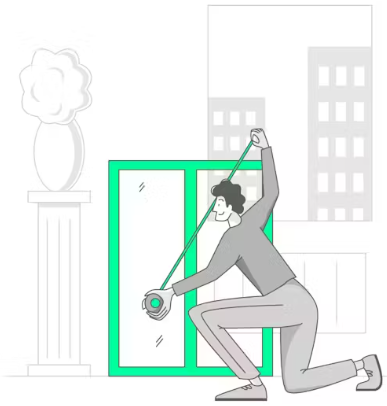
After installation, verifying the quality of the work is essential. Check for gaps, improper sealing, or difficulty in operation. Best Enterprises stands by their work, ensuring that every installation meets our high standards and your complete satisfaction.
Why Choose Best Enterprises General Contractor
Choosing Best Enterprises for window installation means benefiting from a unique combination of reliability, attention to detail, and customer-focused service. Their commitment to using high-quality materials and ensuring each installation is performed to the highest standards sets them apart.
Testimonials from satisfied customers often highlight the work’s professionalism, timeliness, and cleanliness, alongside the noticeable improvement in home energy efficiency and aesthetics. These endorsements testify to Best Enterprises’ dedication to exceeding customer expectations with every project undertaken.
Conclusion
Quality window installation is an investment in your home’s future. It’s about creating a more comfortable living environment, enhancing your home’s aesthetic appeal, and improving energy efficiency.
With Best Enterprises General Contractor, you’re installing windows and investing in your home’s future. Contact us today to see how we can transform your home with every pane installed to perfection.
How to Identify Quality Window Installation Services
The windows in your home serve as more than just portals to the outside world they are -integral to your living space’s aesthetics, energy efficiency, and overall functionality. Choosing the right quality window installation services is crucial for both energy savings and long-term value. However, with so many options available, homeowners must carefully select a window installation company that fits their specific needs.
This in-depth guide will explore the essential elements to consider when selecting professional window contractors and introduce you to Best Enterprises General Contracting, a prominent provider of top-tier window installation services in East Northport and surrounding areas.
Research and Recommendations:
Embarking on the journey to find quality window installation services necessitates thorough research. Commence by seeking recommendations from friends, family, or neighbors who have recently undergone window installations. Their direct experiences can provide valuable perspectives on various window contractors’ professionalism and overall satisfaction. Additionally, utilize online resources by perusing reviews and testimonials to gauge the reputation of potential companies.
Attributes of the Best Window Installation Company:
Identifying the best window installation company requires a nuanced evaluation of various attributes. A reputable company should boast a solid track record backed by years of experience in the industry. Positive customer reviews indicate the company’s dependability and work excellence. Ensuring that the professional window contractors you consider are fully licensed and insured is crucial, providing you with the peace of mind that your project is protected.
Professional Window Contractor Expertise:
Opting for a window contractor specializing in professional window services is pivotal for the success of your installation project. A seasoned expert brings knowledge and expertise to the forefront, guaranteeing the precise execution of your project. Requesting the contractor’s portfolio allows you to assess their expertise with various window types and designs, instilling confidence in their ability to meet your requirements.
Window Installation Checklist:
To systematically evaluate potential contractors, create a comprehensive window installation checklist. This checklist should encompass various crucial aspects:
- License and insurance verification: Ensure the contractor is licensed and carries adequate insurance.
- Years of experience and expertise: Prioritize contractors with a proven track record in the industry.
- Customer reviews and testimonials: Gauge the satisfaction levels of previous clients.
- Quality of materials used: Inquire about the materials the contractor uses for installations.
- Transparency in cost estimates: A reliable contractor should provide clear and transparent estimates.
- Warranty details and after-sales services: Assess the warranty offered and the availability of after-sales support.
- Commitment to eco-friendly options and energy efficiency: Consider contractors who offer sustainable solutions for energy-efficient homes.
Best Enterprises General Contracting: Setting the Standard
In East Northport and surrounding areas, Best Enterprises General Contracting stands out as a premier provider of window installation services. Our Commitment to excellence is reflected in our team of professional window contractors dedicated to delivering top-notch craftsmanship and exceptional customer service.
At Best Enterprises, we take pride in ensuring that every client receives individualized attention and solutions crafted to meet their distinct needs, all at affordable prices. Whether you require window replacements or installations, Best Enterprises General Contracting possesses the expertise to meet and exceed your expectations.
Eco-Friendly Options and Improved Energy Efficiency:
What sets Best Enterprises apart is our commitment to provide more than just conventional window installation services. We go above and beyond by offering eco-friendly options and solutions to enhance home energy efficiency.Importantly, the professional window contractors at Best Enterprises understand the increasing demand for sustainable building practices.
By recommending energy-efficient windows and incorporating eco-friendly materials, Best Enterprises contributes to the aesthetic enhancement of homes and a greener environment. Homeowners benefit from reduced energy bills and a smaller carbon footprint, making their investment in quality window installations even more rewarding.
Conclusion:
Ultimately, choosing the right window contractors goes beyond surface-level decisions it requires thoughtful consideration of several key factors. By adhering to the instructions in this thorough guide, you can confidently choose a skilled window contractor that suits your particular needs and preferences. Best Enterprises General Contracting is a beacon of excellence in the East Northport area, offering unparalleled window installation services backed by experience, expertise, and an unwavering commitment to customer satisfaction. Elevate the beauty and efficiency of your home with the trusted professionals at Best Enterprises General Contracting.
Maintenance Tips for Long-Lasting Windows
Windows, often described as the eyes of a home, require consistent care to maintain their functionality and visual appeal. With the right window maintenance tips, homeowners can extend the life of their windows, improve energy efficiency, and protect their investment. Beyond their architectural significance, well-maintained windows contribute to a home’s aesthetics, ventilation, and comfort. This blog explores essential window services from professional maintenance to easy DIY techniques—and how Best Enterprises General Contracting sets the gold standard in care and durability.
Regular Cleaning for Sparkling Windows:
Routine cleaning stands out as one of the easiest and most impactful methods to uphold the condition of your windows. The gradual buildup of dirt, dust, and grime can have a noticeable impact on your windows’ aesthetic appeal and operational efficiency over time. To keep them sparkling clean, follow these window-cleaning techniques:
- Use a Mild Cleaning Solution: Prepare a solution by combining mild dish soap with water for cleaning your windows. Using harsh chemicals may result in damage to both the glass and frames.
- Microfiber Cloth or Sponge: Choose a gentle microfiber cloth or sponge for wiping your windows, steering clear of abrasive materials that could potentially scratch the glass.
- Vertical and Horizontal Strokes: When cleaning, employ vertical strokes on one window side and horizontal strokes on the opposite side. This technique helps identify streaks and ensures a thorough clean.
DIY Window Care:
There are several DIY window care tips that homeowners can implement to extend the lifespan of their windows:
- Inspect and Repair Sealant: Check the sealant around your windows regularly. If you notice gaps or deterioration, reapply a high-quality sealant to prevent drafts and water leaks.
- Lubricate Window Tracks: Window tracks can accumulate dirt and debris over time, hindering smooth operation. Use a lubricant based on silicone to guarantee smooth opening and closing of the tracks.
- Check for Air Leaks: Detecting and sealing air leaks is crucial for energy efficiency. Apply weather-stripping or caulk to close gaps around the window’s frames and sashes.
Maximizing Window Lifespan:
Windows are a significant investment, and maximizing their lifespan requires a proactive approach to maintenance. Consider the following tips to ensure your windows stand the test of time:
- Trim Overhanging Branches: Branches that touch or rub against windows can cause scratches and damage. Trim overhanging branches to protect the glass and frames.
- Protect Windows During Construction: If you’re undergoing construction or renovation projects, protect your windows from debris and potential damage. Cover them with plywood or other protective materials.
- Professional Inspection: Arrange regular professional inspections to detect and resolve potential issues before they become more serious. Best Enterprises General Contracting, for instance, emphasizes regular inspections as part of its commitment to window maintenance excellence.
Best Enterprises General Contracting: Setting the Standard for Window Maintenance:

We are renowned for our commitment to quality construction and maintenance practices. When it comes to windows, the company follows a set of best practices to ensure our clients’ windows remain in optimal condition for years:
- Customized Maintenance Plans: Best Enterprises develops personalized window maintenance plans tailored to each client’s needs. This proactive approach addresses potential issues before they become major concerns.
- Skilled and Trained Technicians: The company employs skilled and trained technicians specializing in window maintenance. Their expertise ensures that windows are cared for with precision and attention to detail.
- High-Quality Materials: Best Enterprises General Contracting only uses high-quality materials for window maintenance and repairs. This commitment to quality ensures longevity and durability.
Conclusion:
Proper window maintenance is a crucial aspect of homeownership, impacting your windows’ aesthetic appeal and functionality. By incorporating regular cleaning, DIY care techniques, and professional maintenance services, you can extend your windows’ lifespan and enhance your home’s overall comfort. Best Enterprises General Contracting serves as a prime example of a company that goes above and beyond to follow the best maintenance practices, setting the standard for long-lasting windows. Adopting these tips will save you money in the long run and contribute to your home’s sustainability and efficiency.
Local vs. National Window Installation Services: Pros and Cons
Choosing between local and national window replacement services is critical when upgrading your home with new window installations or replacing old ones. Both options have advantages and drawbacks, making it essential for homeowners to weigh their priorities. In this comprehensive exploration, we will delve into the pros and cons of local and national window installation services, shedding light on why opting for a local contractor, such as Best Enterprises General Contracting in East Northport, could be the key to a successful and personalized window installation experience.
Local Window Contractors: The Community Connection Advantage
Pros of Local Window Contractors:
-
Community Roots:
Local window installation contractors are deeply ingrained in the communities they serve. Best Enterprises General Contracting, located in East Northport, is a prime example. This community connection often translates to a higher level of accountability and a genuine commitment to the satisfaction of local homeowners.
-
Personalized Service:
Local contractors thrive on providing personalized service. They take the time to understand the unique needs of homeowners, offering tailored solutions for their window installation projects. This personalized touch is invaluable, especially when aiming for seamless integration of new windows into the existing aesthetics of your home.
-
Faster Response Time:
Urgent situations demand swift responses. Local contractors, being nearby, can offer faster response times. Whether it’s a sudden window damage or an unexpected issue during installation, a local contractor is more likely to address it promptly.
-
Knowledge of Local Regulations:
Local contractors know their area’s specific building codes and regulations. This local knowledge ensures that your window installation complies with all necessary standards, preventing potential legal or structural issues down the line.
Cons of Local Window Contractors:
-
Limited Resources:
Local contractors might need more support when it comes to resources compared to their national counterparts. This can affect the variety of products and services they can offer.
-
Smaller Scale Operations:
For homeowners undertaking extensive projects, the smaller scale of local operations might need to be improved. With their vast resources, national companies could be better equipped for larger-scale endeavors.
National Window Installation Services: The Scale Advantage
Pros of National Window Installation Services:
-
Wide Range of Products and Services:
National companies often boast extensive window products and services. This variety can benefit homeowners seeking specific features or customization options for their new window installations.
-
Established Reputation:
The reputation of national companies is often well-established. With a history of completing projects across different regions, homeowners may find a sense of confidence in the reliability and quality of their work.
-
Advanced Technology and Techniques:
Larger companies generally have access to the latest technology and installation techniques. This can be appealing to homeowners looking for cutting-edge solutions in window installation.
Cons of National Window Installation Services:
-
Less Personalized Service:
The sheer size of national companies can sometimes result in a less personalized experience for homeowners. Your project might feel like just another job in their system, needing more individualized attention than local contractors are known for.
-
Potentially Longer Response Time:
National companies might have longer response times due to their size and the many projects they handle. This delay can be significant, particularly for smaller or urgent window installation jobs.
Best Enterprises General Contracting: Elevating Local Excellence

In East Northport, Best Enterprises General Contracting is a shining example of local excellence in window installation services. Our commitment to the community, personalized approach, and swift response times make us a top choice for homeowners seeking professional window installations .
In conclusion, whether you choose a local or national window installation service depends on your specific needs, the scale of your project, and your priorities as a homeowner. Best Enterprises General Contracting exemplifies how a local window installation contractor can combine the best of both worlds, providing the resources and expertise needed for quality window installations while maintaining the personalized service that sets us apart in the East Northport community. When investing in new window installations or replacements, consider the unique benefits a local contractor can bring to your home improvement journey.
Improve Indoor Air Quality with Proper Window Ventilation
Creating a healthy and comfortable living environment involves carefully considering temperature control, lighting, furniture arrangements, and choosing the right window installation contractor to improve indoor air quality. While these elements are crucial, one aspect that is often overlooked is indoor air quality. The air we breathe inside our homes impacts our health and well-being. Poor ventilation can accumulate pollutants and allergens, leading to respiratory problems and various health issues. Fortunately, proper window ventilation is a straightforward yet effective solution to enhance indoor air quality. By understanding the importance of window ventilation and optimizing it, we can significantly improve the air we breathe and create a healthier living environment.
The Importance of Indoor Air Quality
Indoor air quality refers to the air condition inside a building or dwelling. Indoor air can be more polluted than outdoor air due to various factors such as inadequate ventilation, volatile organic compounds (VOCs) released from building materials, dust, pet dander, and other allergens. Long-term exposure to low-quality air can cause several health concerns, such as allergies, headaches, lethargy, and respiratory problems.
Window Ventilation and its Benefits
Proper window ventilation plays a crucial role in maintaining good indoor air quality. Permitting the flow of fresh air and eliminating stale air, window ventilation helps reduce indoor pollutants’ concentration and replenish the oxygen supply. The benefits of window ventilation include the following-

- Improved Air Circulation: Opening windows allow fresh air to enter the space, promoting better air circulation. This reduces contaminants and odors, making the atmosphere more palatable and healthy.
- Removal of Indoor Pollutants: Opening windows allows indoor pollutants such as smoke, cooking fumes, and volatile organic compounds (VOCs) to escape. This improves the quality of the air we breathe by lowering the concentration of harmful contaminants.
- Moisture Control: Proper window ventilation helps to control excess moisture in indoor spaces, which is crucial in preventing mold and mildew growth. Window ventilation contributes to a healthier indoor environment and helps prevent dampness-related respiratory issues by reducing humidity levels.
Best Energy-Efficient Replacement Windows for Improved Ventilation
While window ventilation is essential, investing in energy-efficient replacement windows that provide optimal airflow while minimizing energy loss is equally important. The right windows can significantly improve indoor air quality and overall comfort. Here are a few factors to consider when selecting replacement windows for improved ventilation:
- Double or Triple Glazing: Opt for windows with double or triple glazing, as they provide better insulation and soundproofing while allowing for proper ventilation. These windows create a barrier against outdoor noise and temperature fluctuations while enabling fresh air to flow in.
- Operable Windows: Choose windows that can easily open and close to facilitate airflow. Casement windows, awning windows, and sliding windows are popular choices as they can be adjusted to control the air entering the space.
- Window Screens: Installing window screens is essential to prevent insects and debris from entering your home while allowing fresh air flow. Screens help to filter out dust and pollen, improving indoor air quality.
Professional Window Installation and Maintenance
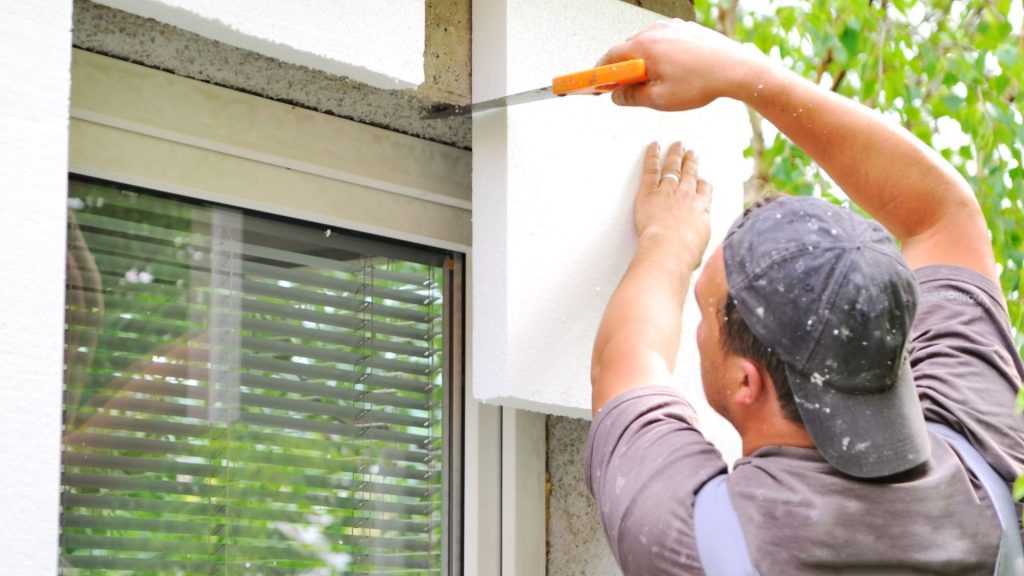
It is crucial to rely on professional installation and maintenance services to ensure your windows operate properly and maximize their ventilation capabilities. Improper installation can lead to air leaks, reducing the effectiveness of your windows and increasing energy loss. Best Enterprises General Contracting is a reputable window installation contractor serving East Northport, NY, and surrounding areas.
They have a track record of completing window installations of the highest caliber that are energy-efficient and aesthetically pleasing. Their experienced professionals ensure that windows are installed correctly, providing optimal ventilation and energy efficiency.
In addition to professional installation, regular window maintenance is vital to keep your windows in top condition. This includes cleaning the window frames, lubricating moving parts, and inspecting for any signs of damage or wear. Properly maintaining your windows can ensure they function optimally and provide effective ventilation for years.
Conclusion
Window ventilation must be done properly to improve indoor air quality and provide a healthy living environment. Investing in the best energy-efficient replacement windows and relying on professional window installation services are essential for optimal ventilation.
Best Enterprises General Contracting is a trusted window installation contractor in East Northport, NY, and surrounding areas. With their expertise and commitment to quality, they can help transform your living space by providing energy-efficient windows that enhance ventilation and contribute to better indoor air quality. A step towards a healthier home by prioritizing proper window ventilation and entrusting your window installation needs to the experts.
Choosing Energy-Efficient Windows: Key Factors to Consider
Best Replacement Window brands in 2022
Are you planning to replace your existing windows or install new ones? With so many options available, it’s easy to feel overwhelmed. In this guide, we’ll walk you through the top window brands, their pros and cons, and how to decide which one best fits your needs.
Windows do more than just enhance your home’s curb appeal. They improve energy efficiency, environmental friendliness, and overall comfort. After extensive research including warranty comparisons and customer reviews we’ve compiled a list of the best window brands in the market.
Who Makes the Best Windows?
Which brand offers the best quality at the most reasonable price? With so many manufacturers, it’s important to compare performance, design, warranty, and value. Below are four of the most reliable window brands, listed in alphabetical order:
Alside Windows
Based in Ohio, Alside is known for offering durable vinyl windows in various styles such as casement, double-hung, and bay. These windows are designed to fit into existing spaces, making them ideal for replacement projects.
Alside products are primarily sold at Lowe’s and independent home centers in the Midwest and East Coast regions. Since 1947, the company has been a leader in vinyl siding and window accessories.
Key Features:
-
Over 3,000 employees and 100+ retail outlets nationwide
-
Lifetime limited transferable warranties
-
Wide range of home improvement products including siding, cladding, and patio doors
-
ENERGY STAR® certified insulated glass packages
Alside’s commitment to innovation and quality craftsmanship has earned it a strong reputation in both residential and commercial markets.
Andersen Windows
Available across all 50 states, Andersen is one of the most trusted names in replacement windows. The brand is known for its wide product selection and strong warranty coverage—offering 20 years on glass and 10 years on non-glass parts.
Andersen windows can be found at major retailers such as The Home Depot and Lowe’s. While they tend to be priced higher than competitors, their quality and customization options justify the investment.
Notable Product Lines:
-
400 Series – High-end wood and vinyl replacement windows
-
E-Series – Fully customizable, ideal for specialty installations
-
Variety of operational styles including casement, double-hung, gliding, and bay windows
Whether you’re updating a historic home or designing a modern one, Andersen has options to suit almost every style.
Milgard Windows
Unlike many competitors, Milgard manufactures all its components in-house—from glass to vinyl parts. This results in consistent quality and better customer support. Though not available in all regions, Milgard serves 16 states and offers lifetime and full warranties on many products.
Milgard frames come in vinyl, fiberglass, and aluminum, but not hardwood. Its Trinsic Series offers a sleek, modern design, while the Ultra Series provides durable, wood-clad fiberglass ideal for harsher climates.
Available Styles:
-
Bay, bow, casement, and garden windows
-
Picture windows and skylights
-
Bi-fold and stacking glass doors
-
SmartTouch® hardware for easy operation
Milgard’s in-house production and innovative hardware features make it a reliable choice for modern homeowners.
Pella Windows
Pella is a household name and one of the largest window manufacturers in the U.S. With nationwide availability and strong green credentials, Pella is ideal for eco-conscious buyers. The company uses sustainable materials and partners with responsible wood suppliers.
Most Pella products meet or exceed ENERGY STAR® performance standards. They also offer several product lines to match your aesthetic and budget needs.
Top Collections:
-
Architect & Lifestyle Series – Elegant hardwood windows with classic design
-
Impervia Series – Durable fiberglass windows that mimic wood grain
Pella’s environmental efforts and versatile design options make it a favorite among both builders and homeowners.
Conclusion
When choosing the best window brand, consider factors like energy efficiency, warranty coverage, material preferences, and budget. Whether you go with Alside’s affordability, Andersen’s quality, Milgard’s innovation, or Pella’s eco-friendly focus, each brand brings something unique to the table.
Use this guide to make a more confident and informed decision for your window upgrade or new construction project.

